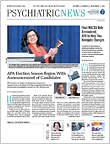The importance of good documentation cannot be overstated. Documentation can provide evidence of care provided or not provided; serve to promote patient safety and minimize error; ensure regulatory, accreditation, and reimbursement compliance; provide an effective defense in a medical malpractice claim, and even prevent a claim from going forward. The medical record, whether in paper or electronic form, is a legal document. The medical record is
•
Considered the primary tool for communication among the psychiatrist and other care providers.
•
Considered an accurate reflection of the care provided.
•
Used to reconstruct the care provided.
•
Provides evidence of professional credibility.
Scrutinized by the plaintiff and defense attorneys.
Documentation includes the notes in the psychiatric medical record itself, including informed consent, telephone messages/responses, prescriptions, and, if used, email communication with the patient.
Documentation should have these characteristics:
•
Clear: Document using specific, factual, and objective language. Avoid language that is speculative, opines, or is subjective in nature.
•
Comprehensive: Document all facts relevant to the course of treatment, patient condition, and response to treatment.
•
Concurrent: Document as soon as possible but never in advance. If there is a late entry, label the note as such.
•
Credible: Document in a professional, appropriate manner. Never alter the medical record because no matter how good and appropriate the care, an altered record is indefensible.
The basic elements for documentation include the following:
•
A thorough medical history: Is the patient’s medical, psychiatric, and social history, as well as the family medical and psychiatric history, thoroughly documented?
•
Relevant information regarding diagnosis and treatment: Is the assessment, diagnosis, and treatment plan recorded for each patient visit? Is there evidence of recognition and timely interventions upon a change in the patient’s condition? Are telephone messages and the responses documented with dates and times? If the patient’s insurer audits the medical record, will the documentation support the billing practices?
•
Assessment of the patient’s risk for suicide or possible violence toward others: Is the risk of suicide or violence toward others assessed and addressed throughout treatment?
•
Informed consent: Is there documentation that consent was obtained from the patient at the start of treatment? When new medications were started?
•
Medications: Are the medication prescriptions complete with medication name, dosage, and frequency? Is there evidence that side effects are consistently monitored, including blood levels as appropriate? If a medication is used off-label or carries a black-box warning, manufacturer’s warning, or FDA advisory, is the documentation explicit regarding discussion of the potential benefits, risks, side effects, and alternatives?
•
Compliance or noncompliance with treatment: Is the description of the patient’s compliance to the treatment plan, medications as ordered, and follow-up care noted in an objective manner without labeling?
•
Formal consultations: Is the consultation with another provider, including the specifics regarding the patient’s diagnosis and treatment, the reason for the consultation, the name of the consultant, and recommendations, recorded in the notes?
Document thoroughly and concisely. Failure to document is not only unethical but can lead to license revocation, restriction, or disciplinary actions and also the inability to defend a malpractice claim. ■
Allied World, through its subsidiaries, is a global provider of innovative property, casualty and specialty insurance and reinsurance solutions. Allied World is the APA-endorsed carrier for the professional liability program through its strategic relationship with the American Professional Agency Inc., the Program Administrator. This information is provided as a risk management resource and should not be construed as legal, technical, or clinical advice. Consult your professional advisors or legal counsel for guidance on issues specific to you. This material may not be reproduced without the permission of Allied World. Risk management services are provided by or arranged through AWAC Services Co., a member company of Allied World.

